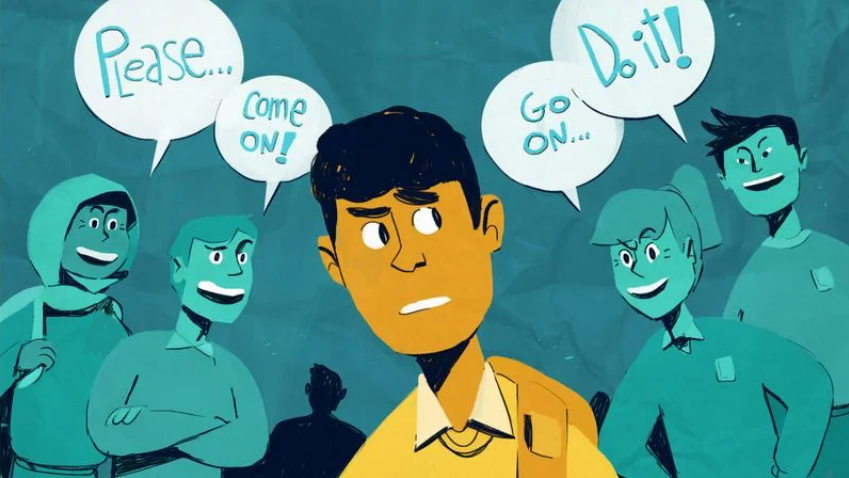~ Yashika Sehgal
Impact of Peer Pressure on Adolescents
In a fast moving and busy world like ours, it is very common that people, especially teenagers experience the problem of not being able to fit in. During teenage years, there are a lot of changes that are going on in a child’s life. These include not only physical changes but also mental and emotional changes. It has been observed quite a lot of times that children start feeling that nobody understands what they are going through or experiencing at that moment. This is where peer groups kick in. Peer groups are basically people who are around the child. These people have an influence on how the person thinks, behaves and acts. Peer pressure can have both direct and indirect influence on a person. In some cases, peers proactively influence the person and tell them what to do and what not to. In other cases, a person just willingly follows what his or her peers are doing.
Pros and Cons of Peer Pressure
Peer groups can have a negative impact on children. Teenagers might engage in habits such as drinking and smoking. Drastic changes can occur in the attitude and behaviour of a person such as antisocial behaviour and development of aggression. He or she tends to detach themselves from their family. Being distracted all the time is a common symptom of peer pressure. It can also increase the risk of mental health issues such as depression and anxiety. It can have a negative impact on the way you think and what your goals are in life.
Mostly peer groups are associated with peer pressure. Not to forget, they can have a positive impact on a person also. They give a sense of support and belonging to a person. They make the person feel like he is not alone. This also tends to increase the self confidence of a person. Peers can be positive and supportive as well, helping each other develop new skills, or develop interest in books, music or extracurricular activities. When people of the same age share their relatable experiences with each other, it becomes easy for everyone to cope up.
Prosocial Behaviour
Prosocial behaviour basically means the actions and intention to help other people in the society voluntarily. It is not necessary for the help to be monetary in nature. It can also include comforting a friend in time of need, mentoring a less experienced person than you, taking care of someone else’s pet etc. It is helpful for both who are receiving help and for those who are giving help. Prosocial behavior also contributes to the well-being of the person giving the help.Over time, prosocial behavior is associated with greater psychological well-being, better social relationships, and better physical health, including greater longevity. It reduces stress and leads to a positive and optimistic mood. It induces the values of empathy and concern in us. Therefore, this kind of behaviour needs encouragement in the society.
Types
There are 3 types of prosocial behaviour:
- Proactive: These are prosocial actions that serve self-benefitting purposes.
- Reactive: These are actions that are performed in response to individual needs.
- Altruistic: These include actions that are meant to help others without any expectations of personal gain.
Friends are the only people we choose in our lives. We must choose them wisely. What we need to find is a right as well as like minded peer group which has a positive impact on us. By doing this we can practice prosocial behaviour. Prosocial behaviour can be inculcated in our daily lives by helping other people in need. This help doesn’t necessarily need to be monetary. Give people your time, make them feel heard, just be kind to people around you. All these things will improve the physical as well as mental health of individuals and the society as a whole.
Must read: https://skchildrenfoundation.org/mental-health-and-its-importance/





